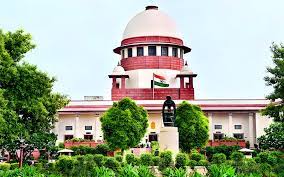
The Indian Supreme Court has brought into focus an intriguing conundrum as it questions the ability of a convict from the Bilkis Bano gang-rape case to continue practicing law post-conviction. The court’s inquiry delves into the compatibility of a criminal record with the ethos of the legal profession, commonly regarded as a noble endeavor.
The matter caught the court’s attention when advocate Rishi Malhotra, defending the remission granted to Radheshyam Shah, one of the convicts in the Bilkis Bano case, brought forward the fact that his client had served more than 15 years of actual sentence. Shah was among the 11 convicts released prematurely.
Expressing its astonishment, the court voiced its skepticism over how a convict, even one who has been granted remission, could be permitted to practice law. The interaction between the legal system and the criminal justice system sparked the court’s concern regarding the individual’s eligibility to practice law after being convicted for heinous crimes like gang-rape and murder during the 2002 Gujarat riots.
During the proceedings, Shah’s advocate Rishi Malhotra informed the court that, since his release, his client had resumed practicing law and was currently serving as a lawyer at a motor accident claims tribunal. This revelation raised questions regarding the ethics of granting convicts, who have been convicted of offenses involving moral turpitude, the right to enroll as advocates.
Section 24A of the Advocates Act is pertinent in this context, stating that a person convicted of an offense involving moral turpitude cannot be enrolled as an advocate. The provision also stipulates that such disqualification ceases to have effect two years after the individual’s release or dismissal.
The court’s scrutiny further extended to the remission policy itself. The Gujarat government had released the convicts based on the 1992 remission policy, not the one adopted in 2014. The latter policy restricts remission for crimes investigated by the CBI or cases involving murder with rape or gang-rape.
The broader implications of this case involve a nuanced intersection of criminal justice, ethics, and the legal profession’s principles. The court’s questioning raises the larger debate about the eligibility of convicts, especially those convicted of grave offenses, to continue practicing law.
This exchange exemplifies how legal proceedings can lead to discussions that extend beyond specific cases, delving into the broader realms of law and society. As the hearing on this matter is set to resume on August 31, the legal community and the public await the court’s stance on the complex matter of convicts practicing law.
The case surrounding Bilkis Bano’s harrowing experience during the 2002 Gujarat riots continues to evoke significant legal and ethical debates. The rights of victims, the responsibilities of the state, and the rehabilitation of convicts remain essential aspects of this evolving legal narrative.
Sources By Agencies


